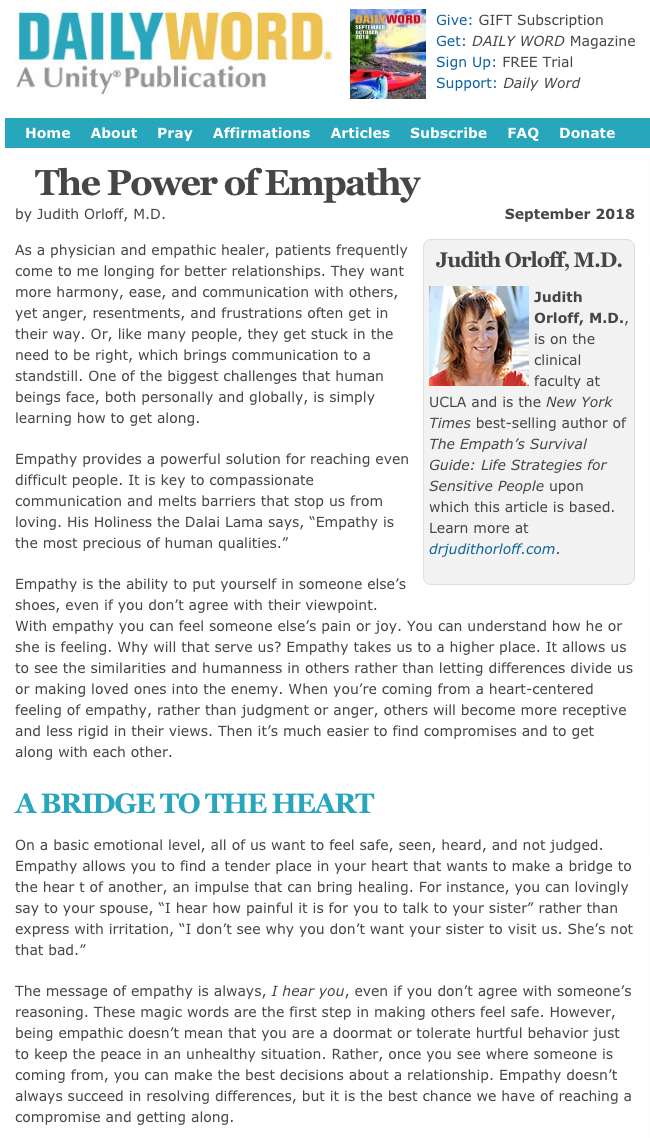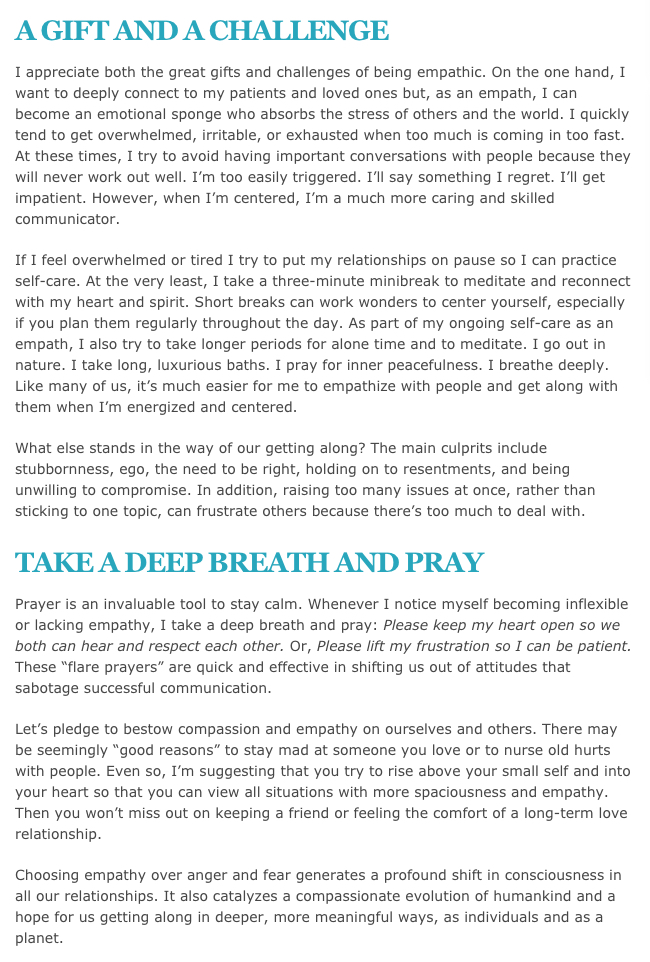Are you an empath? Take the test here to determine your empath score.


Summary of Article
As a psychiatrist and an empath, I am fascinated by how the phenomenon of empathy works. I feel passionately that empathy is the medicine the world needs right now.
Empathy is when we reach our hearts out to others and put ourselves in their shoes. It also means that we can be happy for others during their times of joy. However, being an empath goes even farther. The Dali Lama says, “Empathy is the most precious human quality.” During these stressful times, it’s easy to get overwhelmed. Even so, empathy is the quality that will get us through. It will enable us to respect one another, even if we disagree. Empathy doesn’t make you a sentimental softy without discernment. It allows you to keep your heart open to foster tolerance and understanding. It might not always be effective in getting through to people and creating peace but I think it’s the best chance we have.
In my book “The Empath’s Survival Guide” I discuss the difference between ordinary empathy and being an empath. Like many of my patients and myself, empaths are people who’re high on the empathic spectrum and actually feel what is happening in others in their own bodies. As a result, empaths can have incredible compassion for people–but they often get exhausted from feeling “too much” unless they develop strategies to safeguard their sensitivities and develop healthy boundaries.
Research shows that high sensitivity affects approximately 20 percent of the population. Empaths have often been labeled as “overly sensitive” as children and adults and told to “get a thicker skin.” We are shamed for our sensitivities rather than supported. We may experience chronic exhaustion and want to retreat from the world because it often feels so overwhelming. But at this point in my life, I wouldn’t give up being an empath for anything. It lets me sense the secrets of the universe and know passion beyond my wildest dreams.


